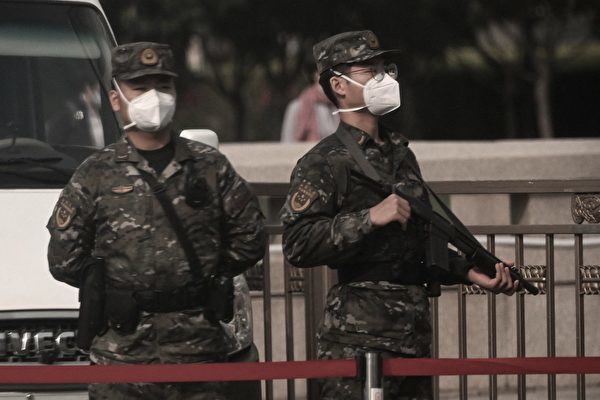Child receiving treatment for lead poisoning (video screenshot)
[People News] The lead poisoning incident involving children at a kindergarten in Tianshui, Gansu Province, has sparked widespread public and media concern. On the evening of July 7, parents of affected children from Tianshui gathered outside the inpatient department of Xi’an Central Hospital. According to the final inspection results released by the joint investigation team from Tianshui City, all 251 children at the kindergarten have now been tested. Based on blood lead standards, 233 children were found to have abnormal blood lead levels, while only 18 were within the normal range.
A parent told Da Xiang News that this incident constitutes poisoning, not just elevated lead levels — it is moderate lead poisoning. Over 100 children came to the hospital for treatment, most of whom were found to have severe lead poisoning upon examination.
The parent also revealed that in their child's class of 29 students, 27 have already been hospitalized with lead poisoning — only 2 have yet to be tested. "All the results are above 200 μg/L, none are low, and over 70% are very high." Currently, parents report that the treatment costs are primarily being paid out-of-pocket, and future treatment will depend on the children’s lead elimination progress.
According to a report by The Paper, some parents became emotionally distraught upon seeing the excessively high values on their children’s reports, calling in desperation to ask what should be done. Others reportedly fainted from stress and were carried out on emergency stretchers by medical staff.
Yan Chonghuai, a pediatric professor and expert on childhood lead poisoning at Xinhua Hospital affiliated with Shanghai Jiao Tong University School of Medicine, told Cover News that the normal blood lead level for young children should be around 20 μg/L. Even in cases of regular exposure to paint, dust, or passive smoking, lead levels typically only rise to about 50 μg/L. He emphasized that without heavy lead intake, it is very difficult for blood lead levels to exceed 50 μg/L.
Yan said that based on the children's clinical symptoms, blood lead levels, and past cases, it’s likely a case of chronic lead poisoning (over 3 months). In such cases, most of the lead accumulates in the bones. Even when treatment brings blood lead levels down, they may rebound after stopping treatment. Several courses of therapy are usually needed until there’s no rebound, after which treatment can shift to nutritional and behavioural therapy, with continued monitoring until blood lead drops below 100 μg/L.
He also pointed out, “The neurodevelopmental toxicity of lead is essentially irreversible. Even if blood lead levels return to normal through treatment, IQ may not recover to its original levels. For example, if blood lead reaches 300–400 μg/L and goes untreated, the child may lose about 7 IQ points. With aggressive treatment, perhaps 2–3 points can be regained.”
On July 8, the joint investigation team from Tianshui City released a notice regarding the handling of the abnormal blood lead levels at Peixin Kindergarten in Maiji District.
The notice stated that as of 10 p.m. on July 7, all 251 children at the kindergarten had been tested. According to blood lead standards, 233 children had abnormal blood lead levels, while 18 were normal.
A total of 223 food samples, including preserved meals, were tested. Of these, 221 passed inspection, while 2 samples from Peixin Kindergarten failed. One was a tri-coloured red date rice cake from breakfast, and the other a corn sausage roll from dinner. The lead content in these two samples was found to be 1,052 mg/kg and 1,340 mg/kg respectively — far exceeding the national food safety standard limit for contaminants, which is 0.5 mg/kg.
 Food served at the kindergarten (image from the internet)
Food served at the kindergarten (image from the internet)
According to the investigation, the kindergarten principal Zhu Moulin and investor Li Moufang had approved the kitchen staff to purchase colored paints through an online platform. These paints were then diluted and used in food preparation. In the early morning of July 3, law enforcement seized the remaining hidden paint, which, upon inspection, was found to contain lead and clearly labelled as not for consumption.
Currently, the police have criminally detained Zhu Moulin, Li Moufang, and six others on charges of producing toxic and harmful food. Two additional individuals have been placed under residential surveillance pending investigation.
One online comment read: “As long as what the upper class eats is different from what the lower class eats, incidents like this will never end.”











News magazine bootstrap themes!
I like this themes, fast loading and look profesional
Thank you Carlos!
You're welcome!
Please support me with give positive rating!
Yes Sure!